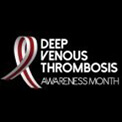The most common reported symptoms of DVT are leg pain or uncomfortable pulling sensation, redness and/or swelling of the affected limb. These symptoms, most generally, are constant in nature meaning these symptoms do not ‘come and go’. Unfortunately, only about half of those with a confirmed dvt diagnosis report any of these symptoms. Many patients have no symptoms at all. March is DVT Awareness Month. According to national surveys, 74% of Americans have little or no awareness of the symptoms of a DVT. Minnesota Vein Center joins national professional organizations this month to help raise DVT awareness and help optimize access to care for those with a suspicion or confirmed DVT diagnosis. Statistics reveal that 2 million people are diagnosed yearly in the U.S. with deep vein thrombosis, with approximately 600,000 being hospitalized. Unfortunately, not all people with a DVT are diagnosed. Many people who have DVT’s are unaware they have a serious health issue and over 200,000 people die each year due to complications of deep vein thrombosis, known as a pulmonary embolism (PE). A pulmonary embolism occurs when the clot, or a piece of the clot, breaks free from the vein wall and travels toward the lungs. In the lungs the clot eventually lodges in the pulmonary artery. This causes the blood flow from the heart to the lungs to become obstructed. Amazingly, many of these deaths are preventable! The best way to diagnose a DVT, when indicated, is with a simple, non-invasive test called a venous ultrasound. We provide this testing in our office using state-of-the-art ultrasound technology and highly skilled and experienced registered vascular technicians. Additionally, our vascular lab is certified by the IAC (Intersocietal Accreditation Commission). We provide this service to our new and existing patients and also on short notice of referral from health providers around the local area to facilitate rapid diagnosis and treatment. The typical treatment for deep vein thrombosis includes anticoagulation (‘blood thinners’) compression and exercise, although patients with small blood clots of the calf may not require these. When indicated, Dr Pal provides consultation on available treatment options with you and will help you to get started on the appropriate treatment plan while communicating your progress with your primary physician. Visit our office during the month of March and help us to heighten the public’s awareness of this often silent condition. If you or someone you know experiences leg discomfort, swelling, or has suspected venous disease call 651-384-4521. In recognition of DVT Awareness Month, Minnesota Vein Center offers a Free Vein Screening from March 28 through March 31st. Schedule your screening today.
- Open 8:30 AM - 4:30 PM
- 651-765-8346

